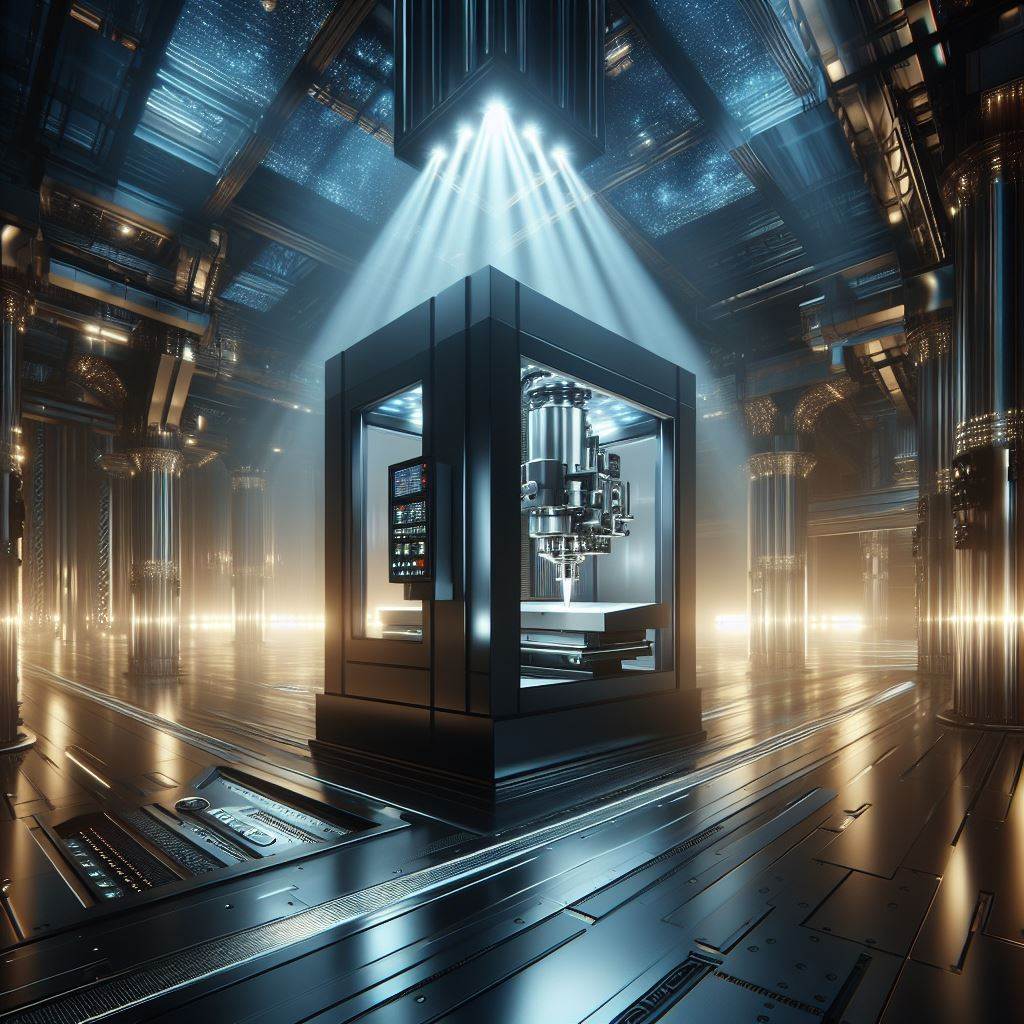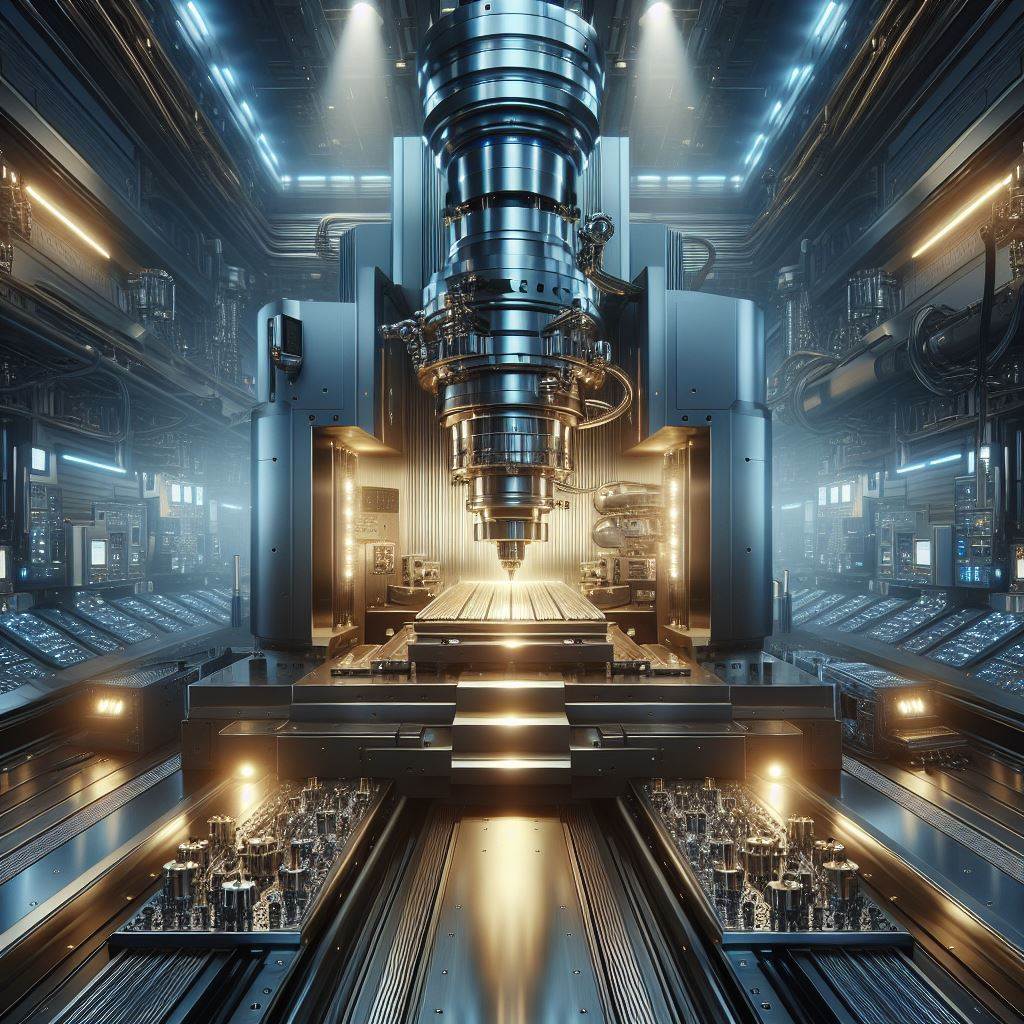Introduction
The manufacturing industry is undergoing a significant transformation driven by technological advancements, sustainability initiatives, and the need for increased competitiveness. In this comprehensive guide, we bring together insights from top manufacturing experts like Tim Cook, Elon Musk, Lisa Su, Peter Navarro, John Flannery, Denise Johnson, and Mary Barra. By exploring their perspectives on technology, sustainability, and leadership, we aim to provide actionable advice and a glimpse into the future of manufacturing.
Section 1: Embracing Technology for Manufacturing Excellence
The Role of Technology in Modern Manufacturing
Technological innovation is at the heart of the manufacturing revolution. Industry leaders emphasize the importance of adopting advanced technologies such as the Internet of Things (IoT), artificial intelligence (AI), robotics, and 3D printing. These technologies are not just buzzwords but essential tools that can enhance efficiency, reduce costs, and improve product quality.
Key Insights:
- IoT and Smart Factories: Tim Cook and Elon Musk highlight how IoT enables real-time monitoring and predictive maintenance, leading to significant reductions in downtime and operational costs. Cook notes, “IoT is revolutionizing our production processes, ensuring that every machine operates at peak efficiency.” Musk adds, “Smart factories are the future, where interconnected devices work seamlessly to optimize production.”
- AI and Data Analytics: Lisa Su and Denise Johnson discuss the transformative power of AI and data analytics in manufacturing. Su states, “AI allows us to analyze vast amounts of data to gain insights into production processes, identify patterns, and make data-driven decisions that enhance productivity.” Johnson agrees, adding, “With AI, we can predict maintenance needs and avoid costly downtime.”
- Robotics and Automation: Peter Navarro emphasizes the role of robotics in automating repetitive tasks, improving precision, and increasing production speed. “Advanced robotics can perform complex tasks with high accuracy, reducing human error and enhancing product consistency,” Navarro explains.
Practical Tips:
- Invest in IoT Infrastructure: Start by integrating IoT devices into your existing systems to collect and analyze data in real-time.
- Adopt AI Solutions: Implement AI-driven analytics tools to optimize your production processes and predict maintenance needs.
- Automate with Robotics: Identify tasks that can be automated and invest in robotic systems to enhance efficiency and precision.
Section 2: Sustainability and Inclusivity in Manufacturing
Building a Sustainable Future
Sustainability is a critical aspect of modern manufacturing. Leaders like John Flannery and Mary Barra advocate for sustainable practices that not only benefit the environment but also drive economic growth and innovation. Incorporating sustainability into manufacturing strategies ensures long-term viability and a positive impact on society.
Key Insights:
- Energy Efficiency: Implementing energy-efficient technologies and practices can significantly reduce the environmental footprint of manufacturing operations. Flannery notes, “Adopting renewable energy sources and optimizing energy usage are essential for sustainable growth.”
- Circular Economy: Embracing the principles of the circular economy, such as recycling and reusing materials, can minimize waste and promote resource efficiency. Barra explains, “A circular economy approach leads to cost savings and environmental benefits, ensuring a sustainable future.”
- Inclusive Growth: Promoting inclusivity by providing skill-based employment opportunities can revitalize local communities and contribute to economic growth. “Investing in workforce development ensures a steady supply of skilled labor for the manufacturing sector,” says Barra.
Practical Tips:
- Optimize Energy Usage: Conduct energy audits to identify areas for improvement and invest in energy-efficient technologies.
- Implement Recycling Programs: Establish recycling and waste management programs to reduce waste and promote resource efficiency.
- Invest in Workforce Development: Partner with educational institutions to provide training programs that equip workers with the necessary skills for modern manufacturing.
Section 3: Leadership and Innovation for Competitive Advantage
Leadership Lessons from Manufacturing Pioneers
Effective leadership is crucial for navigating the complexities of the manufacturing industry. Leaders like Tim Cook, Lisa Su, and Denise Johnson share valuable lessons on fostering innovation, building effective teams, and driving organizational change.
Key Insights:
- Fostering Innovation: Encouraging a culture of innovation is essential for staying competitive. Cook emphasizes, “Continuous improvement and investing in research and development are key to fostering innovation.”
- Building Collaborative Teams: Creating a collaborative environment where diverse teams can thrive leads to better problem-solving and innovation. “Trust and communication are key components of successful teamwork,” says Su.
- Navigating Change: Adapting to industry changes and disruptions requires agile leadership. Johnson notes, “Leaders must be proactive in identifying trends and implementing strategies to stay ahead of the competition.”
Practical Tips:
- Encourage Continuous Improvement: Foster a culture that values innovation and continuous learning. Encourage employees to share ideas and experiment with new approaches.
- Promote Collaboration: Build diverse teams and create opportunities for cross-functional collaboration. Invest in team-building activities and open communication channels.
- Stay Agile: Monitor industry trends and be prepared to pivot strategies as needed. Develop a flexible approach to leadership that can adapt to changing circumstances.
Conclusion
The future of manufacturing lies in the successful integration of technology, sustainability, and effective leadership. By embracing these elements, manufacturers can enhance productivity, drive innovation, and create a more sustainable and inclusive industry. The insights and strategies shared by industry leaders provide a roadmap for navigating the complexities of modern manufacturing and achieving long-term success.
Featured Experts:
- Tim Cook: CEO of Apple, advocates for IoT and smart factory implementation.
- Elon Musk: CEO of Tesla and SpaceX, emphasizes the role of IoT and smart factories.
- Lisa Su: CEO of AMD, focuses on AI and data analytics in manufacturing.
- Peter Navarro: Former Assistant to the President for Trade and Manufacturing Policy, highlights robotics and automation.
- John Flannery: Former CEO of GE, advocates for energy efficiency and sustainability.
- Denise Johnson: Group President of Caterpillar, discusses AI and inclusivity.
- Mary Barra: CEO of General Motors, emphasizes circular economy and sustainability.
About the Author
This post was written by the expert team at MachiningPartner.com, your go-to resource for insights and innovations in the manufacturing industry.
Hashtags: #Manufacturing #Technology #Sustainability #Leadership #Innovation #FutureOfManufacturing #Industry4_0 #IoT #AI #Automation #CircularEconomy #InclusiveGrowth
4o

